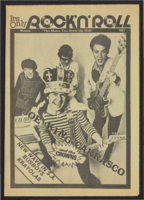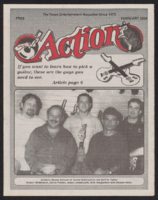John Garland Flowers oral history interview
Description
This is the transcript from the third of three interviews that Bruce Roche conducted with Dr. Flowers just prior to his retirement. Dr. Flowers (Class of 1913) was President of Southwest Texas State College from 1942-1964. In this interview, Dr. Flowers talks about the people who influenced his life and career, his relationship with his predecessor Dr. Evans, and various faculty, staff, and administrators at SWT who contributed to the success of the college. He talks about meeting Lady Bird Johnson in Washington in 1942 and how she helped get a resolution passed in Congress to give a part of Riverside (now Sewell Park) to the school. Flowers also talks about his pride in the institution and being able to work with faculty even when they disagreed. Interviewer Bruce Roche was director of the College News Service. This interview was the source material for his article “Goal: Excellence – Dr. Flowers’ Lifelong Watchword,” published in the Austin American-Statesmanon August 30, 1964.




